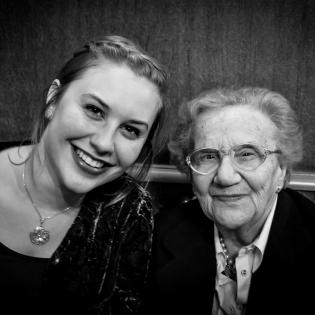Meet Alfred Nobel
This lesson introduces Alfred Nobel and his legacy, the Nobel Peace Prize.
The learner will:
- evaluate the purpose and criteria for awarding the Nobel Peace Prize.
- website information or printout of Background Information on Alfred Nobel (see handout below)
- projected copy of the excerpt of Alfred Nobel’s Will (see handout below)
- optional: read-aloud copy of the book Malala Yousafzai: Warrior with Words by Karen Leggett Abouraya
Instructions
Anticipatory Set:
Show a picture of the young Malala Yousafzai. When she was 17, she won the international Nobel Peace Prize (in 2014). This is an award given each year to people who demonstrate a great contribution toward world peace. People from any country in the world may be nominated or win it.
Optional: To learn more about Malala's life and advocacy for children to attend school, read aloud Malala Yousafzai: Warrior with Words by Karen Leggett Abouraya. This Learning to Give literature guide can facilitate discussion.
Alfred Nobel was an engineer who established the Nobel Prizes in his will. Young people can read about the parts of his life that interest them on this Nobel Prize website.
The Nobel Peace Prize is awarded on December 10, the day of Alfred Nobel’s death, a tradition since 1901. Read the Alfred Nobel Will excerpt that describes his intentions for the Nobel prizes (see handout below). This Will (an example of philanthropy) was how Alfred Nobel attempted to change the world for the better. Talk about what it means to work toward peace in the world. Refer to the Nobel Peace Prize website for more information.
Define vocabulary related to his gift:
- common good (for the benefit of all)
- perpetuity (continuing; a legacy lasting far into the future)
- intent (the expected end result)
- philanthropy (sharing with others your time, talent, or treasures)
- legacy (what one is remembered for or lasting impacts)
Nobel wanted to be remembered for his commitment to peace, and he is now remembered this way through the award. This is his legacy. His memory has achieved perpetuity.
Discuss our own legacies. Discuss how they would want to be remembered in 100 years. What impact would they like to have on the world?
None for this lesson.
Philanthropy Framework
-
Strand PHIL.I Definitions of Philanthropy
-
Standard DP 01. Define Philanthropy
-
Benchmark MS.1 Define philanthropy as individuals and organizations providing their time, talent, and/or treasures intended for the common good throughout history and around the world. Give examples.
-
-
Standard DP 05. Role of Foundations
-
Benchmark MS.4 Define perpetuity and endowment related to the role of foundations.
-
-
-
Strand PHIL.III Philanthropy and the Individual
-
Standard PI 01. Reasons for Individual Philanthropy
-
Benchmark MS.4 Identify and describe the actions of how citizens act for the common good.
-
Benchmark MS.5 Describe the responsibility students have to act in the civil society sector to improve the common good.
-
Benchmark MS.6 Identify and explain how fundamental democratic principles relate to philanthropic activities.
-
-
